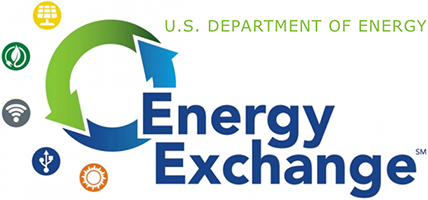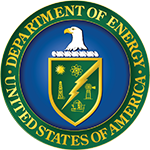Pittsburgh, PA

Join this interactive roundtable featuring experienced state energy lawyers and contracting officers to navigate legal, regulatory, and contractual challenges for incorporating resilience and carbon-free solutions in energy projects. This session also extends the discussion into the path forward towards incorporating the cost of carbon, resilience, and other benefits into the value stream of energy infrastructure projects.
Instructors
Russell Frisby, President, HRF Group, LLC Read Bio
H. Russell Frisby, Jr., an alumni of Swarthmore College and Harvard Law School, is an experienced executive, attorney and board member, and a nationally known expert on legal, regulatory and public affairs matters in the fields of energy, telecommunications, and technology. Russell has extensive experience in developing and implementing strategies to assist companies facing difficult DEI/ESG issues, changes in the regulatory climate, disruptive technologies, market pressures, or M&A concerns. Russell has represented clients in a wide variety of proceedings, including matters before the Federal Communications Commission, the Department of Energy, the Executive Branch, state utility commissions and Congress. He has testified before Congress, and state legislative committees and boards. Russell has been involved as a CEO, director, lawyer, or regulator in several complicated legal, regulatory and public affairs matters including Offshore Wind, Uber's entry into Maryland, Smart Grid deployment, electric industry rate design and transition, telecommunications deregulation and complex transactions.
Margaret Simmons, Counsel, U.S. Army Corps of Engineers Read Bio
Margaret Simmons began working for the U.S. Army Corps of Engineers in April 1985 as a real estate attorney with the Nashville District. In 1991, Margaret has become the primary environmental attorney in Office of Counsel at the Huntsville Center. She advised the Formerly-Used Defense Site (FUDS) Program and contributed to the establishment of the policy and program guidance for execution of FUDS munitions projects. In 1993, she began to work on the Shared Energy Savings Program, which was transitioning to energy savings performance contracts (ESPCs). She was involved with the award of the first set of ESPC nationwide contracts in 1995-1996. In addition, she had responsibility for other contracts and fiscal law matters. In July 2003, Margaret was selected as the Counsel for Huntsville Center (HNC). She is responsible for providing all legal services required to support execution of HNC missions, which span the globe. Margaret received her Bachelor of Science in education from the University of Tennessee (UT), Knoxville, in 1977. She received her Doctor of Jurisprudence Degree from UT Knoxville in 1980 and was admitted to the Tennessee bar in 1980.
Jacob Vigil, Branch Chief, Defense Logistics Agency Energy Read Bio
Mr. Jacob H. Vigil is a Branch Chief and Supervising Contracting Officer for the Electricity, Renewables, and ESPC Branch for the Defense Logistics Agency Energy (DLA Energy). In this role he is responsible for the administration and award of ESPCs and UESCs on behalf of a Military Service. He currently manages a portfolio of several world-wide comprehensive fence-to-fence projects. Mr. Vigil is certified in Contracting at Level III under the Defense Acquisition Workforce Improvement Act, holds an unlimited Contracting Officer's Warrant, and is a member of the Defense Acquisition Corps
Learning Objectives
Upon completion of this course, attendees will be able to:
- Recognize the regulatory, legal, and contracting framework and barriers confronted when developing and implementing energy projects;
- Identify what is meant by the cost of carbon and in how many ways to view and quantify it to develop cost-effective energy projects;
- Select solutions that indicate what is meant by the cost of resilience and how to view and quantify it;
- Identify the recommended directions and/or solutions associated with the barriers.









